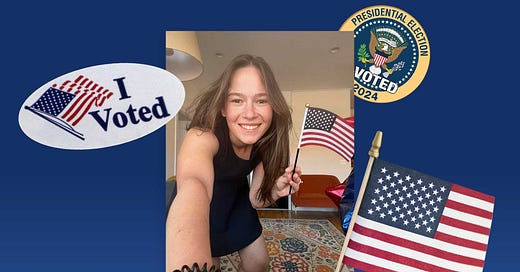
I learned the results of Russia’s 2024 presidential election while standing in line to vote in it.
The polls hadn’t yet closed—at least not in New York, where I was casting my ballot at the Russian consulate this past March—but back in Moscow, then seven hours ahead, state news was already calling it for Vladimir Putin. Early exit polls projected a landslide—an unbelievable 87 percent—for an incumbent running virtually unopposed for his fifth term.
I can’t say I was surprised.
Growing up in Moscow in the late ’90s and early 2000s, I had seen plenty of these tightly choreographed performances that my home country dubs “democratic elections.” I remember the infamous 2011 parliamentary race when state TV, in what can only be described as a remarkable act of generosity, reported voter turnout as high as 146 percent in certain regions. The “orgy of falsifications,” as the Russian political scientist Ekaterina Schulmann called the 2008 presidential election, was still fresh in my memory, too. That’s when Putin—still worried about decorum and wanting to appear democratic—formally stepped down as president after serving his two terms, and Dmitry Medvedev was appointed the country’s nominal leader for the next four years. You want to talk about a rigged election? The number of fake ballots supporting Medvedev was the highest ever. Until 2024, that is.
Even for my cynical self, this year’s Russian election felt qualitatively worse. Never before had the scale of fraud been so staggering—amounting to some 22 million stolen votes, according to two separate independent analyses. In the past, I’d at least made it to the voting booth before learning the inevitable election outcome. This time, it felt as if Grigory Potemkin himself had grown tired, no longer bothering to put up even the facade of those fake villages before Catherine the Great’s arrival.
Still, I waited my turn, went through the motions, ticked off every box but Putin’s, and scribbled “No to war” and “Freedom for political prisoners” beside his name, before dropping my ballot into what I suspected was more likely to be a trash can than a ballot box.
On Tuesday, I’ll vote again. After years of observing and covering U.S. elections, I will get to participate in one for the very first time.




